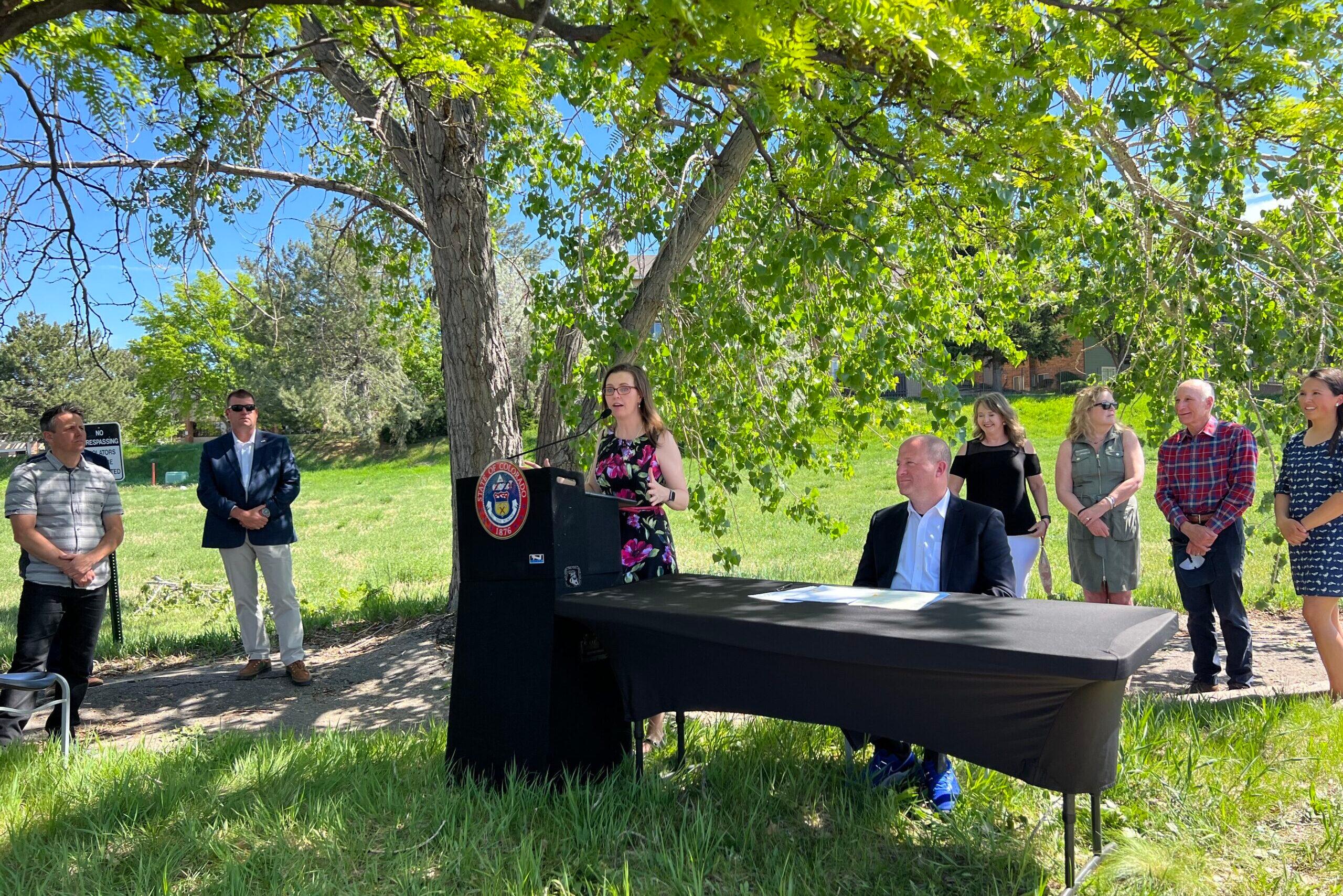
Colorado is putting $150 million into a new housing program that is expected to support the creation of thousands of new houses, apartments and condos.
Under a bill signed by the governor last week, the money will be loaned out at low-interest rates to local governments, nonprofits and developers. They’ll combine it with other sources of money to build housing at a manageable price point for people working in the area. They’ll then repay the debt into the “revolving” fund, allowing it to be loaned out once again.
“This is a key issue going forward: Colorado’s a great place to live, but we need to reduce housing costs,” Polis said in an interview.
“A combination of property tax relief, new tax credits, transformational investments in housing that are then leveraged with private sector investments will substantially increase the inventory and supply of houses in Colorado and help reduce prices.”
State analysts expect the program could support 16,000 new units over a decade, said Democratic state Sen. Rachel Zenzinger, a sponsor. And it represents just a smaller part of nearly $650 million in housing spending authorized by the legislature this year, plus changes that could bring in more money in the future.
Polis signed the bill at the edge of a vacant lot in Arvada. The parcel, not far from busy 80th Avenue and Wadsworth Boulevard, is the future site of an affordable housing project. The project is a collaboration of the city of Arvada and the nonprofit BeyondHome.
House Minority Leader Hugh McKean, a Republican, said he supported the bill because it opens the door for more private development of housing.
“If you can incentivize private capital, then you get what you want and you benefit a company to come and invest in our state. That’s the best possible solution,” he said.
The new money comes from the state’s general fund. It’s possible in large part because the state’s budget is flush from rising tax revenue and Colorado has received billions of dollars in federal COVID-19 relief.
But the new spending can’t close the vast gap in Colorado’s housing needs, estimated at 325,000 new homes over the next few years. Some housing advocates want lawmakers to go beyond simply funding new programs to make big policy changes; they’d like to see the state loosen local development restrictions to encourage more building.
State lawmakers have been hesitant to override local leaders, who have historically set the rules for development. But they have tiptoed into the question of land use by offering financial incentives for cities that embrace denser construction. Gov. Polis also signaled his support for a failed proposal that would have banned cities from enacting growth limits.
Asked at the bill signing if he was interested in exerting more influence over local zoning codes, perhaps by using incentives, Polis responded with a single word: “Yes.”
More housing and homelessness legislation
Other significant housing bills passed in 2022 include:
- HB22-1304 to provide $178 million in grants to governments and nonprofits to help build affordable housing and infrastructure. Local governments that use “sustainable land use best practices,” including by encouraging density, will get dibs on some of the money.
- HB22-1366 to provide $105 million in grants for local governments and nonprofits to provide services and housing for people experiencing homelessness.
- HB22-1378 to provide $50 million of federal funds for the creation of a regional campus for homelessness services in the Denver metro. It may eventually include emergency shelter, housing, medical and other care and more.
- SB22-211 to provide $45 million to repurpose the Ridge View Campus in Watkins, a former residential facility for troubled youth shut down by the state, to provide temporary housing and other homelessness services.
- HB22-1282 to provide $40 million in grants and loans for businesses that develop “new types of innovative housing,” including prefabricated housing factories.
- SB22-160 to provide $35 million in loans and grants to help mobile-home owners purchase the parks where they live.
- SB22-146 to provide $25 million to expand the state’s existing program to support construction of middle-income housing.
- SB22-231 to provide $5.6 million for supportive housing services for people with mental or behavioral health issues.
- SB22-232 to create a $1 million pilot program for a new authority to help build middle-income housing.
The legislature also approved changes to tax credits to help housing projects, an approach that is more popular with the legislature's Republicans.
House Minority Leader Hugh McKean voted against several of the grant packages above, but he supported two new laws creating housing tax credits worth hundreds of millions. Tax credits offer tax discounts for those who give money to housing efforts.
“If you can incentivize private capital, then you get what you want and you benefit a company to come and invest in our state. That’s the best possible solution,” he said.
Bills involving tax credits included:
- HB22-1083 expands an existing income tax credit for people who donate to homeless housing programs. It’s estimated to generate up to $25 million per year in contributions.
- HB22-1051 extends the state’s affordable housing tax credit, which was set to expire in 2024, for seven more years. It’s estimated to allow at least $420 million in credits to fund housing projects through 2031.
Editor’s note: This article was corrected to clarify which of the new laws House Minority Hugh McKean supports.








